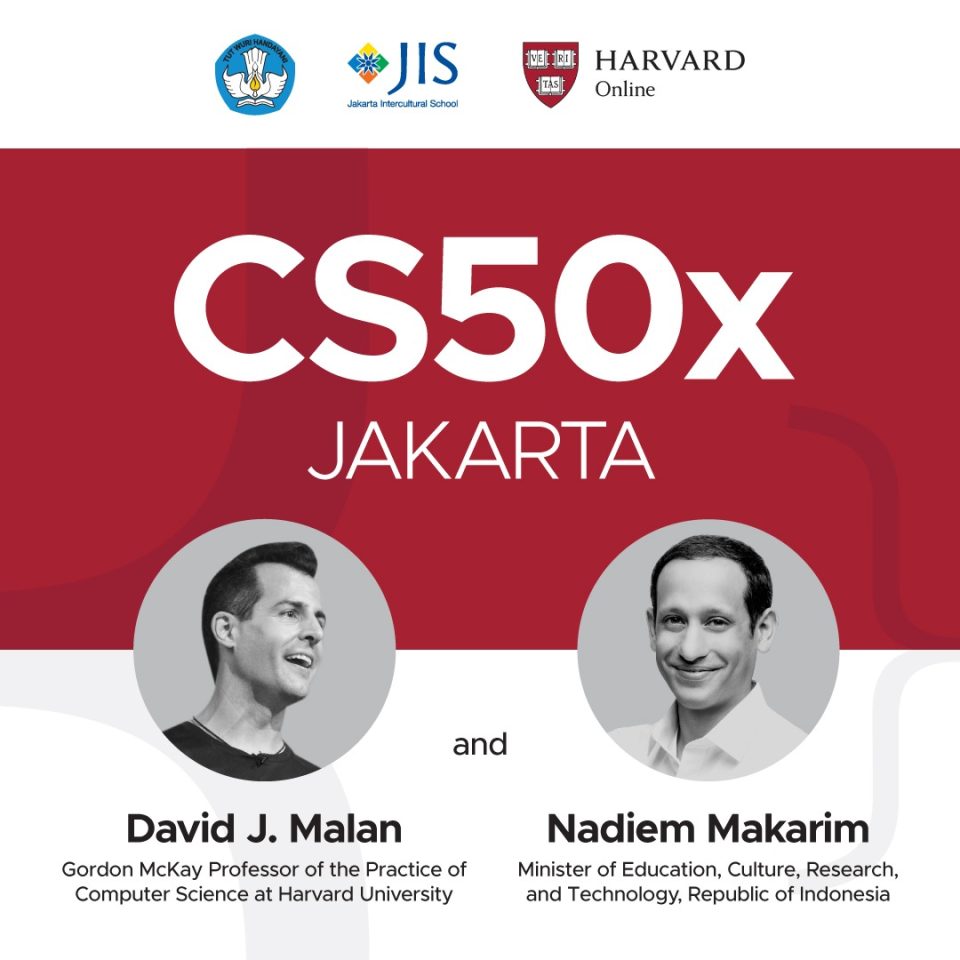Jakarta Intercultural School (JIS) is joining hands with the Indonesia Ministry of Education (MOE) and Harvard University to offer the respected institution’s CS50x course on computer science and programming.
Under the direction of Nadiem Makarim, the Minister of Education, Culture, Research, and Technology of the Republic of Indonesia, the collaboration is part of the education ministry’s broader efforts to support the professional development of teachers in science, technology, engineering, the arts, and mathematics (STEAM).
“The transformation of education begins with the teacher,” says Makarim. “We, at the Ministry of Education, Culture, Research, and Technology, are committed to supporting Indonesian teachers through groundbreaking programs under the Emancipated Learning (Merdeka Belajar) policy. Through the six-month intensive training program of Teacher Leader, the new Emancipated Teaching Platform specifically designed to address teachers’ needs to learn and share good practices with each other, as well as degree and non-degree scholarship programs, we focus on improving teachers’ skills and competence, including in STEAM. We thank CS50 for supporting our commitment to empowering Indonesian teachers for a better, more robust education system.”
“We are honoured to host such a renowned program as Harvard’s CS50x at JIS while supporting the education ministry’s mission to promote effective teaching practices across Indonesia,” says JIS Head of School Maya Nelson. “JIS has a proud history of working closely with both government and private institutions to share the latest innovations in teaching. With this collaboration, we are not only strengthening this tradition but also playing a bigger role in raising awareness about the importance of computer science.”
The entry-level course CS50, taught at Harvard University and led by Harvard Professor David J. Malan, provides an introduction to “the intellectual enterprises of computer science and the art of programming.” CS50x is adapted from CS50. This course is intended for teachers from various parts of Indonesia to learn how to think algorithmically and solve problems with and without code as they cover abstractions, data structures, security software engineering, web development, and more. Programming languages used throughout the course include C, Python, SQL, JavaScript, CSS, and HTML.
Once they have completed the course, teachers can return to lead lessons or workshops in their own classrooms that further enhance their students’ knowledge and practical skills in computer science and programming.




